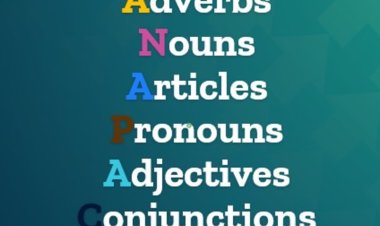How to Improve English Communication Skills
You can improve your English conversation skills by simply having as many conversations in English as possible and by surrounding yourself with English media.

Consider some of the most common terms used in ads for work. You probably have something along the lines of "Excellent communication skills required!" or "Candidate must have strong verbal and written skills!" It would appear that we are now living in a more communications-driven world as a result of rapid technological advancements and widespread internationalization. Few careers are conducive to success without excellent command of the English language.
What’s So Important About Communication Skills?
Some people worried that with the rise of the internet, letter writing would go extinct, but this has shown to be far from the case. Texting, Facebooking, and emailing are becoming increasingly vital means of keeping in touch with friends and family. With an increase in communication comes an increase in the possibility of miscommunication.
Think of how social media can amplify a message. With only a few mouse clicks, you can instantly make a statement to thousands, if not millions, of people. Even if the internet has brought people together in ways that were unthinkable a few decades ago, communicating effectively online still necessitates fluency in multiple languages.
This article will explain why it's crucial to be able to communicate in English, and it will offer advice on how to do so, whether English is your first language or you're learning it as a second.
You'll find out about the English for Speakers of Other Languages (ESOL) programs and other opportunities for English and communication majors at National University.
What’s So Important About English?
When people who speak different non-English languages meet, they often find that English is the common language they can communicate in. This is because English is a lingua franca, or "bridge" language. This is why many companies want their global staff to communicate in English and why English is taught in schools all around the world.
English is the most widely spoken language in the world, and it is also the language of choice for navigational professionals like air traffic controllers and airline pilots. The United Nations' 193 member states recognize it as one of six official languages. About 96% of all scientific journals are published in English, making it the de facto language of scientific discourse. Learning to effectively communicate in English may be just as crucial to receiving a PhD as completing a thesis, say some experts.
As of now, over 2 billion people can communicate in English. Although it is the third most spoken language in the world, English is the most studied language in the world. In reality, more individuals speak English as a second language than speak any other language as their mother tongue.
The ability to communicate well in English is a significant asset, especially in the business, regardless of when you began studying the language.
The Four Skills to Master
Reading, writing, speaking, and listening are the four pillars of effective English communication for both native and ESOL speakers. Naturally, persons vary in how well they possess these abilities. You surely know someone who can hold a conversation in English with you and react with insightful, funny insights that appear to come naturally to them. It's also possible that this person has never read a book in their life and would freeze up at the thought of writing even a brief cover letter. You've also definitely met the polar opposite, an introvert who seems tongue-tied in social situations or whose mind wanders when others are talking, but who reads two novels a week and consistently produces well-crafted essays and articles.
If you want to succeed in life on all fronts, mastering all forms of English communication can help you immensely. The best remedy for a failing talent is more practice at that skill. If you read frequently, especially if you read widely, you will improve your reading comprehension. If the thought of a reading assignment for school or work makes you cringe, try setting a goal to read for a few minutes every day. Do something relaxing like picking up a magazine or novel and reading a few pages at a time (there's no need to rush through them) or truly reading an article a friend has posted on social media.
The same is true of written work. Put in some effort each day. Even if no one ever sees your writing, having an objective reader provide input on occasion is invaluable. Like a runner builds strength and speed by consistently logging miles, a writer hones their craft by frequently logging words.
It takes practice to listen with intent. If you're the kind to daydream about what you'll make for dinner while a friend is talking to you, it can be helpful to simply catch yourself in the act of daydreaming and bring your attention back to the person talking to you. To train yourself to recognize when your mind wanders and bring it back to the task at hand, many professionals advise meditating every day, even if only for a few minutes.
Assess the root cause of your public speaking nervousness; if you're too nervous to make your point, admitting that you're nervous can assist ease your nerves. If you replay a public speech and immediately feel shame, try not to be too hard on yourself. One reason is that we are often our own worst critics, even if others did not share our opinion of its awfulness. Consider how you would react if you were in their shoes. If you were in that person's shoes, your first instincts would be to show compassion and provide words of encouragement. Public speaking requires you to put aside part of your self-judgment so that your mind is free to build cohesive thoughts on the fly.
Finding Your Voice in Writing
Every person has moments when they wish they had said or done something different during a conversation. Conversation lacks an equivalent to "Control-Z." But there is in writing (at least if you're using Windows! ), so whether you're a novelist, a blogger, or "that person" who writes only when desperate, harness the power of rethinking.
Get some distance from your writing and come back to it refreshed if at all possible. In your head, the words will have rearranged themselves for more effect, and you'll be able to notice mistakes far more rapidly than before. If you proofread just after you write, you'll simply read what you intended to write. But if you step back, your flaws become more obvious. Reading your writing aloud, even if just to yourself or your animals, is a wonderful practice.
You can pick up on grammatical errors and stilted wording simply by listening to the words. It's ideal to have a supportive companion or acquaintance read your work aloud to you for feedback. Having your word processor read your text aloud is another helpful method. You might not notice a typo like a doubled "the" or a missing "the," but you definitely would if a robot read it.
Don't kid yourself into thinking that your command of the English language isn't crucial in your day-to-day communications. From tweets to dissertations, everything you write says something about who you are and how you think. It's easy to skimp on grammar and syntax, telling yourself, "They'll know what I meant." Yes, they could, but people often attribute unclear thoughts to sloppy writing. Careful, well-organized writing suggests a sharp mind.
Tips for Improving Your Skills
Many websites offer not only proofreading assistance but also lessons in how to become a better communicator in English. Grammarly and Pro Writing Aid, two of the most popular proofreading apps, do a lot more than just spot spelling and grammar issues. In addition, they will evaluate the text's readability and flow and offer suggestions for enhancement. Focusing on the problems that these tools highlight is like getting a crash education in English grammar and usage.
Consider taking English language courses at National University or another accredited institution if you want to hone your spoken and written English to a higher level.
Learning English as a Foreign Language
English, German, French, Italian, Spanish, and Chinese are just a few of the languages Dr. Starley Dullien, Program Director of English Language and Pathway Programs at National University, speaks fluently. When offering advice on how to use English more effectively in daily life, she draws on her own experiences.
Dr. Dullien suggests setting aside at least an hour or two each day to study English. "You have to make the language a part of your life and a part of you," she advises. Dr. Dullien recommends that those learning English switch their cell phone settings to English rather than their native language.
Learn to read and write English as much as you can. Dr. Dullien recommends keeping an English journal, transcribing English articles, or dictating to yourself in order to improve your language skills. The written form of the spoken phrase is thereby bolstered. Making collages out of magazine articles on related topics is another approach to incorporate visual learning with language acquisition.
Dr. Dullien also notes that picture books with accompanying text are an effective method of teaching a new language. To help reinforce English communication skills, children's books, comics, and graphic novels use the brain's visual capacities.
One such powerful tool for stimulating various brain regions is listening to music. In his own words, "I was singing songs in Italian before I knew what they meant," Dr. Dullien explains. She suggests singing along to English songs with the help of the lyrics, which can be found easily online.
Simply having as many conversations as possible in English and immersing yourself in English media will help you become a more fluent speaker. Follow the news in English. If you're having trouble keeping up, try BBC Learning English's news reports, which are written for readers of varying English proficiency levels. Learn about new topics by tuning into podcasts or radio shows.
When you can't quite form the words you want to speak, try not to freak out. The phrase "tip of the tongue" is an idiom, so don't worry if what you just read doesn't make perfect sense. You don't have any words on the tip of your tongue; instead, you have an idiom, the meaning of which becomes clear only after you've been accustomed with its application in context. Idioms are figurative expressions that use linguistic devices to communicate meaning. No matter how prepared you are, English will present you with challenges; however, there is no need to fret when a word or phrase escapes your memory; even if you make a mistake, you will eventually recover. Don't rush to bed; instead, take some time to relax and study.
The American Association of Intensive English Programs (AAIEP) maintains a website with an idiom generator and many other helpful English activities for those who want to gain a hold on, or learn, the peculiar idioms of the English language more quickly.
Additional tools for improving your English conversational abilities are listed below.
Along with newscasts tailored to your skill level, BBC Learning English also provides lessons, hints, games, idiom and slang explanations, and much more. English beginners can take use of the site's extensive non-English language instruction options.
You may learn English from beginner to advanced level with TalkEnglish's audio and video classes and extensive articles.
EnglishClub offers a wide variety of classes in all four areas of conversation, as well as discussion boards where students can interact with their teachers and peers.
National University: Your Partner in Learning English as a Foreign Language
Dr. Dullien, National University's Program Director for ESOL, claims that the university's programs are effective for students at all stages of learning English in a variety of contexts, including everyday life, higher education, and the workplace.
The ESOL courses offered by National University range in duration and are all delivered on-campus. The programs use blended language learning (BLL) techniques, which combine traditional classroom instruction with a wide range of online resources to help students develop multiple ways of comprehending the target language.
Successful completion of EAP satisfies National University's language competency standards and exempts students from having to take placement examinations. Dr. Dullien is extremely optimistic that EAP graduates will be able to succeed on placement tests like the TOEFL when applying to degree programs outside of National University. Dr. Dullien cautions that "there is a difference between a score and a skill," and that a passing result on an English proficiency test may not reflect the level of English understanding truly required to prosper in an academic setting. In the words of Dr. Dullien, "by the time students are in the final classes of EAP, they will be able to write a formal research paper, make presentations, hold round-table discussions, and give speeches, so they are more than ready to pass exams."
Dr. Dullien describes the English for Specific Purposes (ESP) program as a set of classes meant to improve students' chances of finding work after they graduate from this program or show equivalent competency in English. She explains that many professionals from non-English speaking nations participate in the program during their free time in order to advance in their current fields or switch to new ones. Students of numerous disciplines, including engineering, economics, environmental science, and many more, might benefit from the program's assistance in honing their specialized lexicons. Each student's progress and specific requirements in each subject area are taken into account when designing the curriculum.
Getting Help With Writing
The Writing Center at National University is open to all students, both those who speak English as a first language and those who do not. The coaches at the Writing Center can help you develop the critical thinking and paper-writing skills you'll use throughout college and beyond if you're enrolled in any program that requires written English communication skills. Coaching sessions can be held in person or online.
If You Want Communication in English to Be Your Career
Some people speak English because it is more than a requirement for their careers. The College of Letters and Sciences at National University has a wide variety of degree programs for those interested in working in fields that rely heavily on the ability to communicate effectively in English.
Students pursuing a BA in English are subjected to intensive training in areas such as literary analysis, critical thinking, and written and oral communication. Students learn to think critically and persuasively by reading and discussing works from a variety of cultures and time periods. National University offers a Master of Arts in English for students who want to teach at the university level or who want to study English for other reasons.
National University provides an Associate of Arts with a major in creative writing for students whose interest in English communication lies predominantly in fiction and creative nonfiction.
National University provides a Bachelor of Arts in English with Single Subject Matter Preparation for students interested in teaching English in secondary schools. If you live in California and want to teach English, you can do so without taking the CSET if you earn this degree. Candidates seeking a California teaching credential in English must take the CSET, often known as CSET English.
A Bachelor of Arts in English with a concentration in Inspired Teaching and Learning and a Preliminary Single Subject Credential is another degree option for aspiring teachers in California. This path offers a more in-depth curriculum in literary analysis, linguistics, and communication to hone candidates' command of the English language. It helps educators become more emotionally and socially invested in their kids, which in turn boosts academic success.
Students who earn a BA in Strategic Communications hone their verbal and written communication skills in preparation for careers in business, marketing, and public relations. This course prepares students to communicate effectively on a variety of scales, from the local to the international. The skills they acquire in this class are applicable in any professional setting.
Journalism, film, and entertainment studies at National University are designed to help students adapt to the dynamic and ever-shifting landscape of the media industry. Both the Bachelor's and Master's degrees in Digital Journalism train students in traditional journalism practices while also preparing them to be leaders in the field of digital media.
If you wish to improve your English skills to any degree, National University is the place to do it. It will also help if you dedicate a lot of time to practicing and learning on your own. Gaining the ability to communicate effectively will have far-reaching benefits for your professional and personal life, whether you're communicating face-to-face, in a business setting, or online.

 Metaphorq
Metaphorq 










